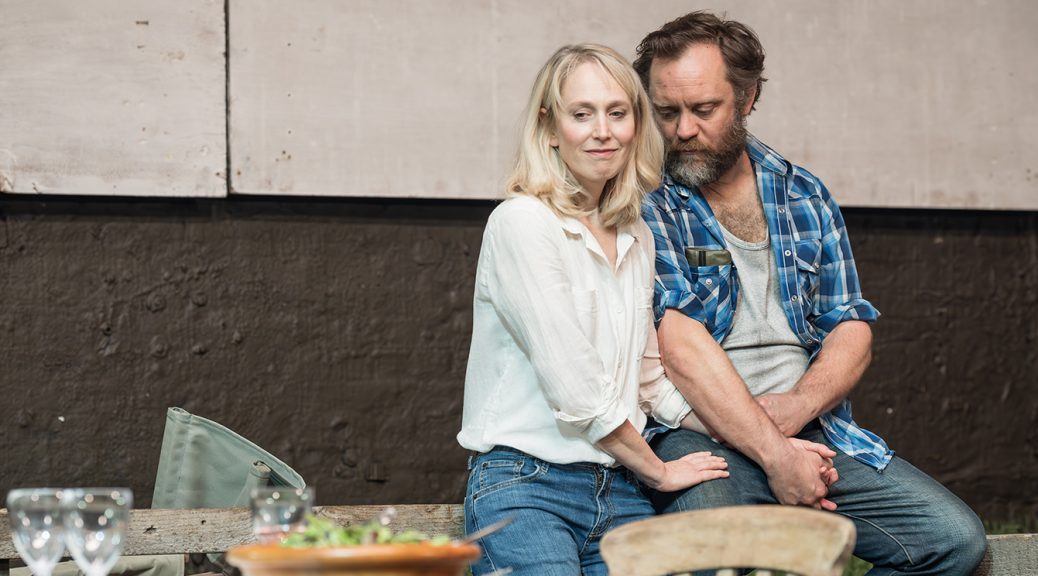Mike Bartlett is in a very serious mood with his latest play. Using close observations and cold wit to look at the effects of climate change on one family ensures the work, skilfully directed by James Macdonald, wins respect. But it is familiar ground, and a harsh edge makes it hard work.
‘Climate grief’ is the issue, although I’ll admit the term is a struggle. The idea is that things are so bad that we’re all in mourning for the planet. Hope is the keyword – not just a lack of it but whether it is even possible anymore. And yes, that is as grim as it sounds, even if Bartlett adds a few good gags along the way.
Whether or not to bring a child into the world was a concern for Bartlett way back in Earthquakes in London. And it’s not as if things have got better. But too much of the argument is the same. It’s impressively intense and undoubtedly important but ultimately repetitious. We start on a family farm, a kind of spin on The Good Life, with fascinating research about agriculture thrown in. But as any kind of compromise is rejected, environmentalism becomes radical and intersects with mental health.
The generational conflict in the play is solid, although Bartlett does better with the older figures. And privilege is something explored well enough. Although it’s hard to like anyone on stage – and credulity is pushed too far – the characters are all entertaining and the kind of roles actors revel in.
Although arguing about who is the key character would be part of the fun, I’m going for Lip, ironically named for his taciturnity. Sam Troughton is fantastic in the part, bringing essential underlying charisma. Lip isn’t an idiot: worrying about an existential crisis is sensible! But his partner, another strong role brilliantly performed by Hattie Morahan, is torn when she becomes pregnant. Other characters, a younger couple and a neighbour, are all filled out, with credit to Terique Jarrett, Nadia Parkes and Jonathan Slinger. The personal stories and perspectives interest, amuse and irritate in equal measure.
Good intentions run through the play and considerably help to make some silly bits credible. Opposing views allow scope in argument although, as with some of the characters, a lot doesn’t quite convince. For all the skill here, the result is strangely formal, tired and a little lost. Given the state and scale of the problems highlighted, maybe that’s understandable.
Until 4 October 2025
Photos by Marc Brenner

